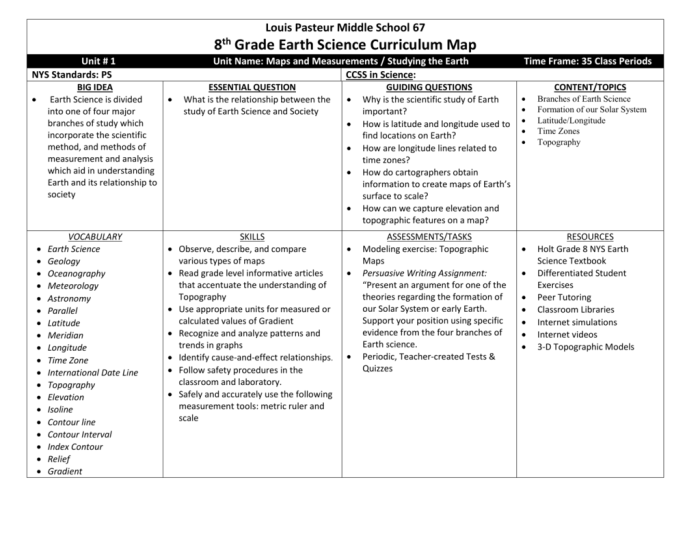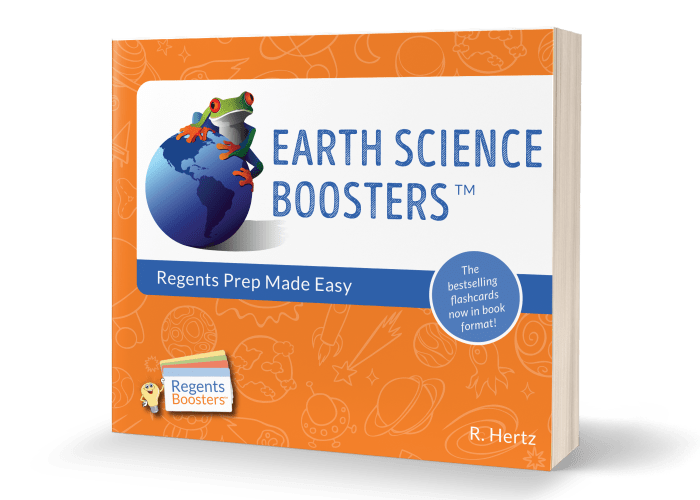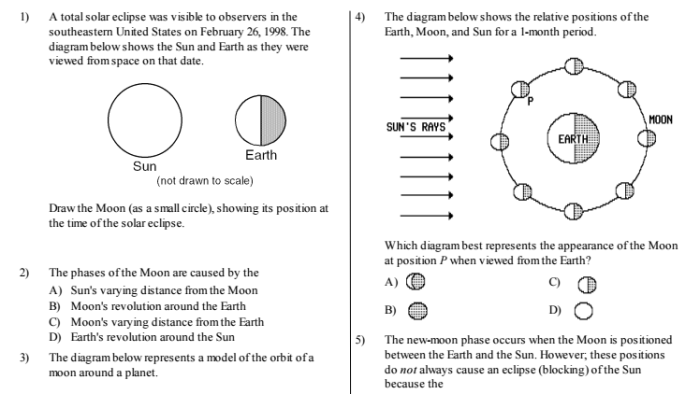Prepare to delve into the fascinating realm of Earth science with our comprehensive guide to Regents Earth Science Questions by Topic. This meticulously crafted resource will empower you to navigate the complexities of our planet’s systems, unravel the mysteries of plate tectonics, and explore the vastness of the cosmos.
Within these pages, you will find an in-depth exploration of Earth’s systems, the theory of plate tectonics, and the classification of rocks and minerals. We will delve into the processes of weathering and erosion, unravel the factors influencing climate change, and examine the various energy and water resources available to us.
Earth’s Systems: Regents Earth Science Questions By Topic

Earth’s systems are interconnected and exchange energy and matter. The geosphere (solid Earth), hydrosphere (water), atmosphere (air), and biosphere (living organisms) interact to shape the planet’s surface and support life.
Earth is a closed system, meaning that matter cannot enter or leave the planet. However, energy can enter and leave in the form of heat and light.
Human Impacts on Earth’s Systems
- Pollution can alter the composition of the atmosphere and hydrosphere.
- Deforestation and urbanization can change the biosphere and affect the climate.
- Mining and extraction of resources can alter the geosphere and release harmful substances into the environment.
Plate Tectonics

Plate tectonics is the theory that Earth’s lithosphere (solid outer layer) is divided into tectonic plates that move relative to each other.
Types of Plate Boundaries
- Convergent boundaries: Plates collide, forming mountains or subduction zones.
- Divergent boundaries: Plates move apart, creating new crust at mid-ocean ridges.
- Transform boundaries: Plates slide past each other, creating earthquakes and faults.
Evidence for Plate Tectonics
- Matching rock formations on different continents
- Distribution of earthquakes and volcanoes along plate boundaries
- Magnetic stripes on the ocean floor
Rocks and Minerals

Rocks are solid aggregates of minerals, while minerals are naturally occurring inorganic solids with a definite chemical composition and crystal structure.
Rock Cycle, Regents earth science questions by topic
Rocks are constantly being formed, changed, and destroyed through the rock cycle. The rock cycle involves three main processes: weathering, erosion, and deposition.
Importance of Rocks and Minerals
- Provide raw materials for construction and manufacturing
- Contain valuable minerals and ores
- Help us understand Earth’s history and evolution
Quick FAQs
What is the difference between weathering and erosion?
Weathering refers to the breakdown of rocks and minerals at the Earth’s surface, while erosion involves the transportation of these weathered materials by wind, water, or ice.
How does plate tectonics contribute to the formation of mountains?
When tectonic plates collide, they can push up the Earth’s crust, resulting in the formation of mountains.
What are the main factors that influence climate change?
The primary factors driving climate change include greenhouse gas emissions, deforestation, and changes in solar activity.